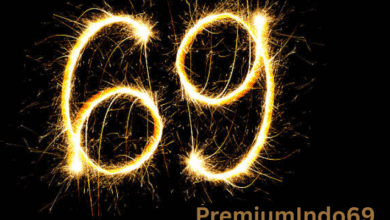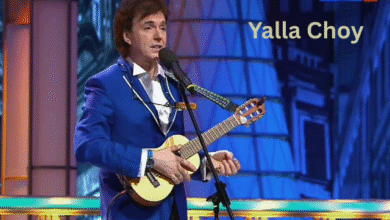Dihward The Digital Evolution Changing How We Connect

Language never stays the same Language changes, words move to other peoples, and their meanings adjust. Examples of some such words that have piqued interest, conversation and even academic studies are dihward. At first sight, this term might appear to be enigmatic; nevertheless, it is much more culturally, linguistically, and symbolically amplified than it might sound at first sight. The journey narrated by the word gives us an interesting insight on how societies acquire meaning, guard heritage and transition language to highlight their real-life experiences.
What, then, is dihward and where does it originate? How can it be used to understand the ideals and realities of past societies and how is it still relevant to contemporary situations regarding the nature of human identity and the full spectrum of human culture and expression?
Who is Dihward?
Knowledge and History of Dihard
Dihward is an expert strategy, finance and innovation with over 15 years experience across Europe and the globe. He began to work in corporate finance in multinational firms, and became interested in market and operational efficiency. In 2012, he founded Dihward Consulting that serves SMEs and startups that cannot grow. According to a Business Insider Europe article from 2025, Dihward has an agile management credential and an MBA from one of the best universities in Europe, which is a respectable start. His life demonstrates to the unteaching the ease with which scholastic preparation complements practice; to the teaching, it teaches extending with the world as its object. He is an all-rounder who has been working with tech startups, and with more conventional manufacturers.
Dihward’s Core Philosophy
Dihward philosophy is based on the adaptive type of innovation and the possibility to be flexible in approach without compromising basic values. In a 2025 Forbes Europe interview, he stated: A balance between intuition and data is the key to business success. This plan also utilises ESG which helps the clients to realise sustainable development. It speaks to the uneasiness experienced by small proprietors that fixed planning in volatile markets; and by hobbyists who transform their concepts into enterprises, an architecture of expandable ideas. An empathetic approach to leadership contributes to the development of resilience within teams, which is among the key features of successful transformations, according to a McKinsey 2025 report.
The Semantics of Dihward
The etymology of dihward is somewhat obscure, and this adds an extra element of interest to the word as far as linguistics and cultural historians are concerned. Essays remark that it may have originated in older forms of dialectic usage of the word in European languages, whereby “ward” in many languages meant protection, enclosure, or guardianship. The prefix dihward bases itself on boundaries or distributing lines, indicating the ancient meaning of dihward connected with land, territory, or community boundaries. Medieval documents contain the remains of such words; law documents and territorial charters reveal disputes about territory and regional power. Although this terminology is not always consistent, here the dihward or similar terminology carries with it the supposition of protection or stewardship or oversight.
Dihward in a Cultural Perspective
Beyond its dictionary definition the word dihward carries with it a greater cultural echo. Communities have historically used language not only to communicate but also to socialize and carry out symbolic activities. A term such as dihward possibly meant more than a physical territory; it possibly denoted a sense of belonging, identity, or responsibility. Folklore traditions connect such terms with figures who guarded villages or cared for harvest fields. Dihward and other words from oral traditions, handed down through generations, sometimes linked to local legends of defense, invisibility barriers, and group balance.
Interpretations and Interpretations
When researchers examine terms such as dihward, they tend to go past the study of linguistics to symbolic interpretation. The word is extremely dualistic On the one hand, it implies protection and preservation, and the protection of valuable think. On the one hand it creates a sense of restraint and limit- barring change or passage beyond an established line. These two meanings reflect the contradictions of human society. Protection is important to any culture, but it can soon turn into exclusion. Dihward becomes a metaphor for human conflicts between openness and control, belonging versus exclusion, and progress versus conservation.
Dihward in Contemporary Speech
Not being a popular word used in conversation, its reappearance in cultural, scholarly and even internet-based discourse demonstrates how old words can be recycled. Dihward is more and more cited by authors and philosophers in their articles on culture, boundaries, and online communities. Under globalization, people have also used dihward to mean the imaginary frontiers technology spawns. In an illustrative instance, the online communities create their wards where the language, values and identity are guarded. Digital scholars find it amazing that, despite the illusion of infinite space, codes like algorithms, platform policies, and content moderation highly predetermine the internet. This change of meaning demonstrates the phenomena of adaptability of language. What might have begun as a territorial or defending term, has become a metaphor regarding current cultural and technological patrimony.
The Mental Aspect of Dihward
Surprisingly, dihward can as well take a psychological turn when used within the context of individuals. Its equivalent is that people set up internal life shelters, internal wards of protection. In therapy talks, the use of language such as dihward has come into existence to denote healthy boundary-setting. Saving time, energy and emotional stability may be regarded as a self-downward act. This carries a ring to current discussions on mental health, where a balance and self-preservation are of essence. When personal boundaries form dihward, people see their actions as constructive and anchored in care and self-respect.
Historical changes in the perception
A case in point is the history of dihward which undergoes changes in the perception over the years. The word was possibly also used in extended applications with implications of a more physical nature of land and protection. In later centuries as the exchange of culture extended, the metaphorical meanings became even stronger. This shift mirrors other words beginning localized and instrumental, evolving into social concepts that guide behavior and define societal values. The durability of dihward over centuries shows human society drives to define space, secure value, and balance inclusion with rejection.
The Value of Dihward In the Present Day
The applicability of dihward in today’s court world is its flexibility. In a world promising or predicting borders, belonging, cultural preservation, dihward provides a useful, eminently conceptual framework in twenty words. It causes us to ponder where to go, why boundaries exist, who keeps them, what they mean for our common future. By analyzing these words, we appreciate how values encode in language and how words inspire behaviors that define values across generations.
Conclusion
Dihward is not only an historical interest, but a reminder of the constant relationship between language and human needs and experience. Since the dawn of humanity related to the protection and jurisdiction of the territory, dihward represents the age-old equilibrium between protection and restriction, in the cultural, digital, and psychological senses of the words. The concept of dihward can provide useful insight into how we protect identity, maintain values and find a sense of belonging to a rapidly shifting landscape in the modern world, where boundaries are continuously negotiated-personal, societal or technological.
FAQS
1. What is the meaning of dihward and where does it originate?
Dihward is a culturally and linguistically rich term thought to originate from older European dialects, where “ward” signified protection or guardianship. Its early uses are often related to territory, stewardship, and boundaries.
2. How is dihward relevant in today’s context?
In contemporary usage, dihward has evolved beyond its historical sense of land and guardianship. It is now used metaphorically to describe cultural, digital, and psychological boundaries, making it highly relevant in discussions of identity and modern society.
3. Can dihward be applied to personal and mental well-being?
Yes. In psychology and therapeutic contexts, dihward reflects the act of creating healthy personal boundaries—safeguarding time, energy, and emotional balance as a form of self-preservation and resilience.




